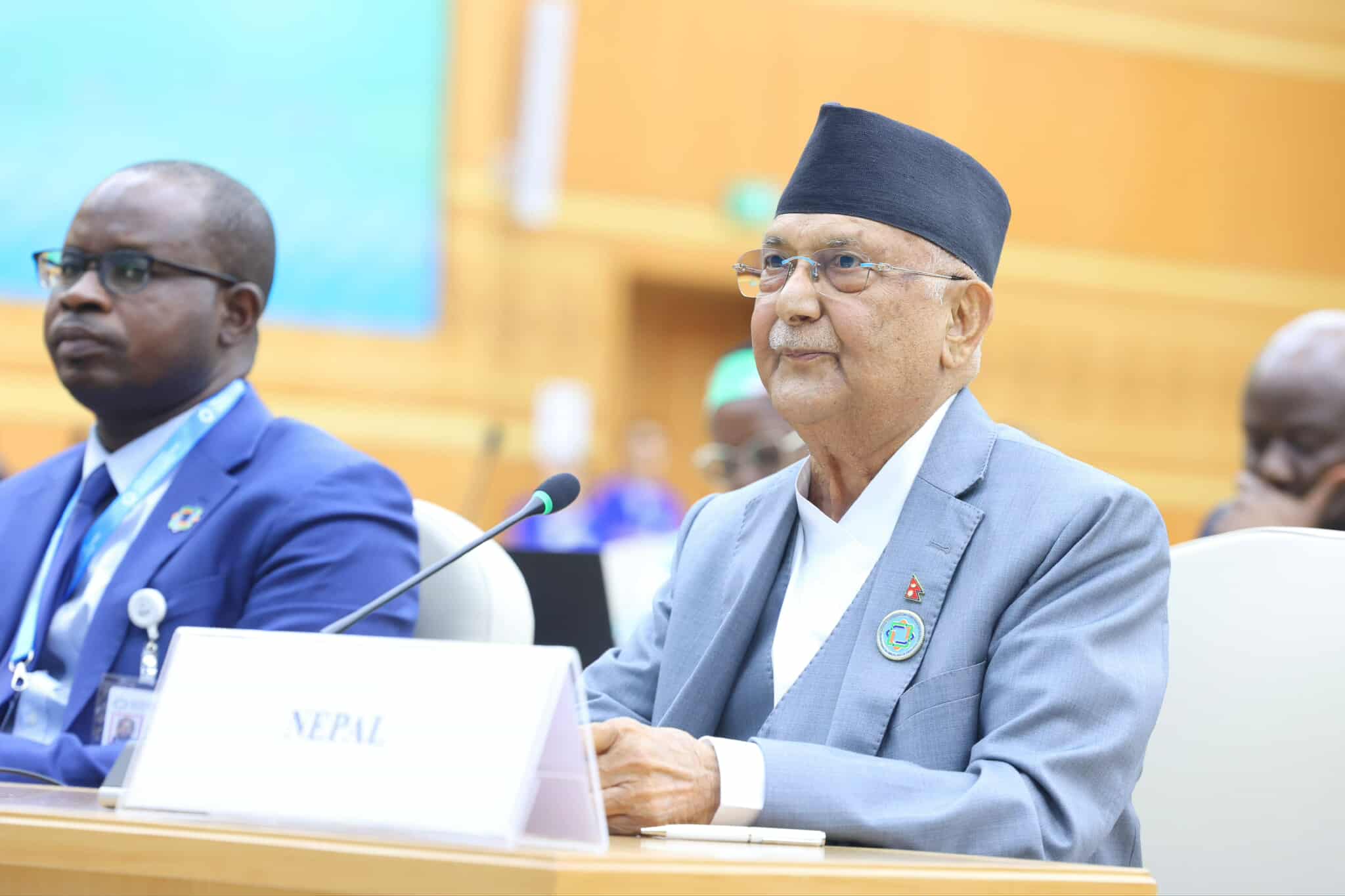

KATHMANDU: Prime Minister KP Sharma Oli, who is leading the Nepali delegation to the Third United Nations Conference on Landlocked Developing Countries (LLDCs), is attending various high-level programs in Awaza, Turkmenistan today.
PM Oli is scheduled to address a thematic roundtable discussion on “Enhancing Adaptive Capacity and Resilience of LLDCs to Disasters Induced by Climate Change.”
Additionally, he will co-chair a session on facilitating trade, commerce, and regional cooperation among LLDCs.
The Prime Minister will also hold courtesy meetings with the Presidents of Kazakhstan, Azerbaijan, and Tajikistan.
Invited by Turkmen President Serdar Berdimuhamedow and UN Secretary-General António Guterres, PM Oli is participating in the conference being held from August 5 to 8.
The conference brings together 32 LLDCs from Africa, Asia, Europe, and South America, representing a population of approximately 440 million.
Discussions are focusing on challenges faced by LLDCs due to lack of direct access to the sea, including remoteness from global markets, cumbersome transit processes, insufficient infrastructure, and high transport and trade transaction costs, which undermine their competitive capacity.
PM Oli’s delegation includes his spouse Radhika Shakya, Chief Advisor Bishnu Prasad Rimal, MP Surya Bahadur Thapa Kshetri, Principal Private Secretary Rajesh Bajracharya, personal physician Prof. Dr. Divya Singh Shah, Foreign Secretary Amrit Bahadur Rai, and other senior government officials.
LLDCs face significant hurdles in international trade, connectivity, and economic development due to their geographic disadvantages.
The conference aims to explore innovative solutions, strategic partnerships, and increased investments to address these challenges and unlock the full potential of LLDCs for achieving Sustainable Development Goals (SDGs).
The previous UN Conference on LLDCs was held in Vienna, Austria, from November 3-5, 2014, where implementation of the Almaty Programme of Action was reviewed and new policies on international trade, transit transport systems, and emerging challenges were discussed.